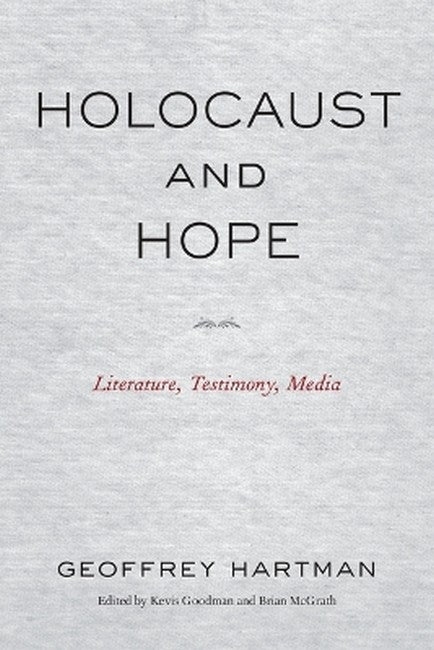Geoffrey Hartman (Author) Geoffrey Hartman was Sterling Professor of English and Comparative Literature at Yale and Project Director of its Fortunoff Video Archive for Holocaust Testimonies. His many books include The Third Pillar: Essays in Judaic Studies (Penn, 2011), A Scholar's Tale: Intellectual Journey of a Displaced Child of Europe (Fordham, 2007), The Geoffrey Hartman Reader (Fordham, 2004, winner, Truman Capote Prize for Literary Criticism), Scars of the Spirit: The Struggle Against Inauthenticity (St. Martin's, 2004), The Fateful Question of Culture (Columbia, 1997) The Longest Shadow: In the Aftermath of the Holocaust (Indiana, 1996), Criticism in the Wilderness: The Study of Literature Today (Yale, 1980, 2nd ed, 2007). Kevis Goodman (Edited By) Kevis Goodman is Professor of English at the University of California, Berkeley. She is the author of Pathologies of Motion: Historical Thinking in Medicine, Aesthetics, and Poetics (Yale, 2023, winner, Jean-Pierre Barricelli Award) and Georgic Modernity and British Romanticism: Poetry and the Mediation of History (Cambridge, 2004). Brian McGrath (Edited By) Brian McGrath is Professor of English at Clemson University. He is the author of Look Round for Poetry: Untimely Romanticisms (Fordham, 2022) and The Poetics of Unremembered Acts: Reading, Lyric, Pedagogy (Northwestern, 2013).
Request Academic Copy
Please copy the ISBN for submitting review copy form
Description
"In this beautifully composed volume Geoffrey Hartman explores the important place of 'literary knowledge' in the aftermath of the Holocaust, insisting on the non-redemptive hope borne by an imaginative language that watches over 'absent meaning.' Framed by an excellent introduction and punctuated by an illuminating interview, Hartman's irreplaceable voice, returning posthumously to us at our own moment of political and ethical crisis, calls upon us to refuse the emptying out of language and thought typical of totalitarian movements and to find the future-oriented words that, like stars, can still have 'an independent existence, that hang glittering in the firmament of discourse.'"---Cathy Caruth, Cornell University

